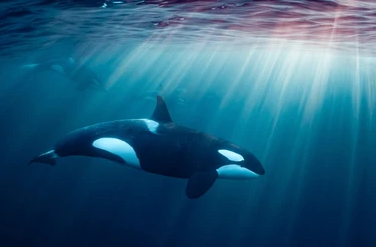A new study has documented 34 separate cases of bizarre orca behavior over the last two decades in which wild orcas appeared to present food to humans. The incidents, recorded in regions ranging from California and New Zealand to Norway and Patagonia, involved orcas delivering fish, rays, and squid to people swimming, boating, or standing onshore.
Published in the Journal of Comparative Psychology, the research brings together observations from scientists in Canada, New Zealand, and Mexico. Researchers Jared Towers of Bay Cetology in British Columbia, Ingrid Visser of the Orca Research Trust in New Zealand, and Vanessa Prigollini of the Marine Education Association in Mexico analyzed each encounter using strict criteria. In every case, the orcas approached humans without being lured or chased and deliberately dropped prey in front of them.
The study sheds new light on Orca behavior, particularly their food-sharing tendencies. While orcas commonly share food within their pods to reinforce social bonds, these human-directed offerings suggest a broader range of social interactions. In most cases, the orcas waited after offering the food, and in seven incidents, they repeated the gesture even after it was declined.
Out of the 34 documented events, 11 occurred in open water, 21 near boats, and two at the shoreline. Some were captured in videos or photos, while others were recounted through interviews.
Scientists say the behavior may be cultural, exploratory, or playful. Orcas are known for their intelligence and strong social ties, and researchers believe these interactions could reflect prosocial behavior similar to that observed in domesticated animals. According to the study, such Orca behavior could also be a way for the animals to practice learned actions and potentially form connections with humans.
“Given their cognitive abilities and cooperative nature, there may be multiple explanations for why killer whales engage in this behavior,” the authors wrote. “It could involve learning, curiosity, or an attempt to communicate.”
This marks one of the first detailed analyses of non-domesticated animals offering food to humans and may broaden scientific understanding of Orca behavior in the wild.
Want more weird news? Here you go!

